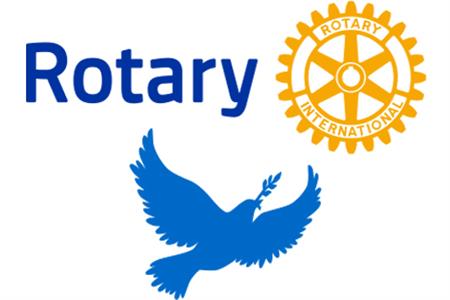
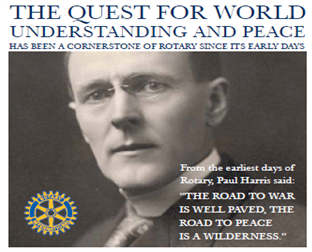
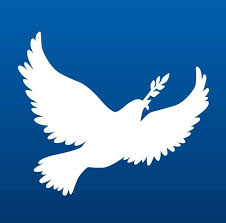 Rotary's Role in the Promotion of Peace
Rotary's Role in the Promotion of Peace
From a pre-World War I resolution calling for “the maintenance of peace” to our continuing support for Rotary Peace Centers, Rotary and its members have a long history of promoting peace and working to address the underlying causes of conflict in communities around the world.
Delegates to the 1921 convention in Edinburgh, Scotland, amended the association’s constitution to include the goal “to aid in the advancement of international peace and goodwill through a fellowship of business and professional men of all nations united in the Rotary ideal of service.”
Delegates to the 1922 convention made sweeping changes to the Rotary International and club constitutions. Separate objectives for each were replaced with the Objects of Rotary (now called the Object of Rotary). The new approach, however, retained the vision for peace.
Rotary published collections of these essays as “A World to Live In” (1942) and “Peace Is a Process” (1944). Recognizing that the end of the war didn’t eliminate the need to discuss these topics, Rotary continued the series with “Peace Demands Action” in 1947.
Rotary was present at the start of the United Nations in 1945. Rotary International was one of 42 organizations invited to serve as consultants to the U.S. delegation to the United Nations Conference on International Organization in San Francisco, California, USA (commonly called the UN charter conference). Additionally, many Rotary members and honorary members from around the world attended the conference as members of and consultants to their nations’ delegations.
Rotary founder Paul Harris recognized the connection between international understanding and peace. In a message to the 1921 convention, Harris had written, “Rotary believes that the better the people of one nation understand the people of other nations, the less the likelihood of friction, and Rotary will therefore encourage acquaintance and friendships between individuals of different nations.”
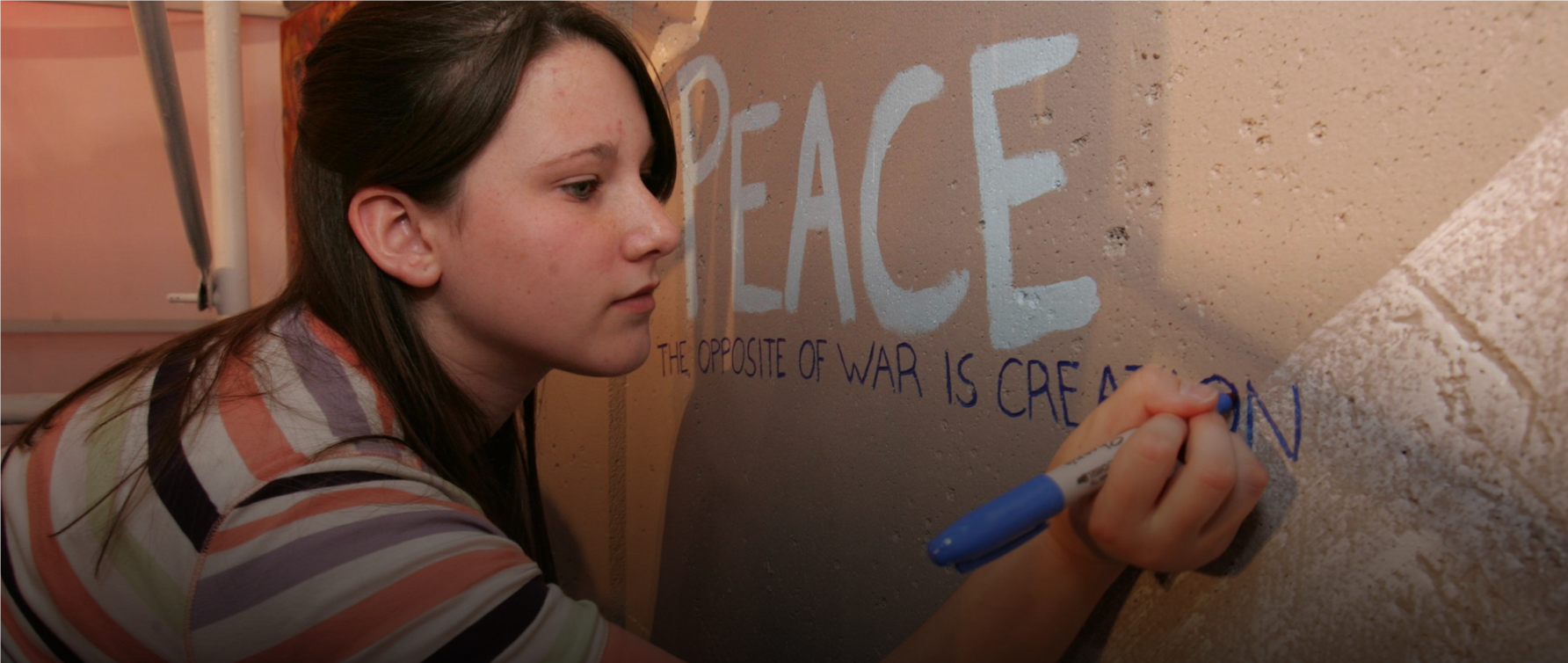
Rotary approved the creation of Rotary Peace Centers program in 1999, and the inaugural class of Rotary Peace Fellows began their studies in 2002.
Rotary Peace Centers, located at universities around the world, develop leaders who become catalysts for peace in local communities and on the global stage. They study the causes of conflict and build practical skills exploring innovative solutions to real-world problems in areas such as human rights, international relations, and global health and development. There are currently seven Peace Centers, and an eighth is being planned for development by 2024.
- A joint program at Duke University and the University of North Carolina-Chapel Hill, USA
- International Christian University, Japan
- University of Bradford, England
- University of Queensland, Australia
- Uppsala University, Sweden
- Two centers, at Chulalongkorn University in Thailand and Makerere University in Uganda, offer a professional development certificate in peace and conflict studies. The yearlong program blends online learning, classroom studies, and a social change initiative.
- The Rotary Foundation Board has approved the creation of an eighth Rotary Peace Center in the Middle East. This Peace Center will be named the Otto and Fran Walter Peace Center in honor of the benefactors who made this possible.
Rotary’s goal today is to create environments where peace can be built and maintained through sustainable and measurable activities in communities worldwide.
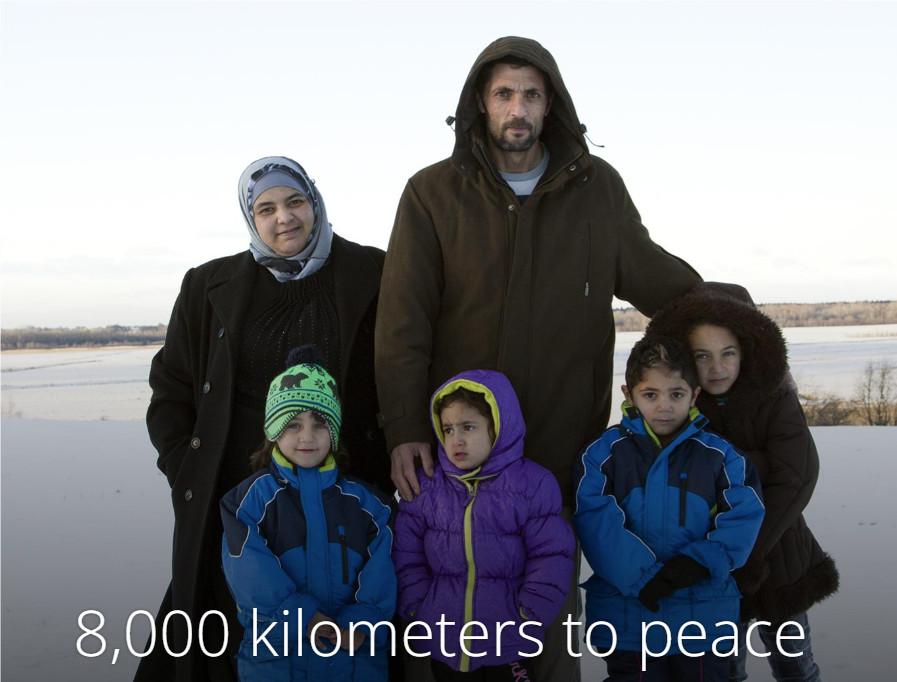
|
Peacebuilding remains a cornerstone of our mission as a humanitarian service organization.
As a humanitarian organization, peace is a cornerstone of our mission. We believe when people work to create peace in their communities, that change can have a global effect.
By carrying out service projects and supporting peace fellowships and scholarships, our members take action to address the underlying causes of conflict, including poverty, discrimination, ethnic tension, lack of access to education, and unequal distribution of resources.
Our commitment to peacebuilding today answers new challenges: how we can make the greatest possible impact and how we can achieve our vision of lasting change. We are approaching the concept of peace with greater cohesion and inclusivity, broadening the scope of what we mean by peacebuilding, and finding more ways for people to get involved.
Rotary creates environments where peace can happen.
Rotary’s Four Roles in Promoting Peace
Rotary and its members are:
- Practitioners: Work fighting disease, providing clean water and sanitation, improving the health of mothers and children, supporting education, growing local economies, and supporting the environment directly builds the optimal conditions for peaceful societies.
- Educators: Rotary Peace Centers have trained over 1,300 peace fellows to become effective catalysts for peace through careers in government, education, and international organizations.
- Mediators: Members have negotiated humanitarian ceasefires in areas of conflict to allow polio vaccinators to reach children who are at risk.
- Advocates: Members have an integral role as respected, impartial participants during peace processes and in post-conflict reconstruction. We focus on creating communities and convening groups that are connected, inclusive, and resilient.
Rotary International Partnerships for Peacebuilding
Rotary International has established many partnerships with organizations that support the Rotary Peacebuilding Mission. A full list of these partnerships can be found on the Rotary Partnerships page.
Re-published from an article on the Rotary District 5080, British Colombia, Canada